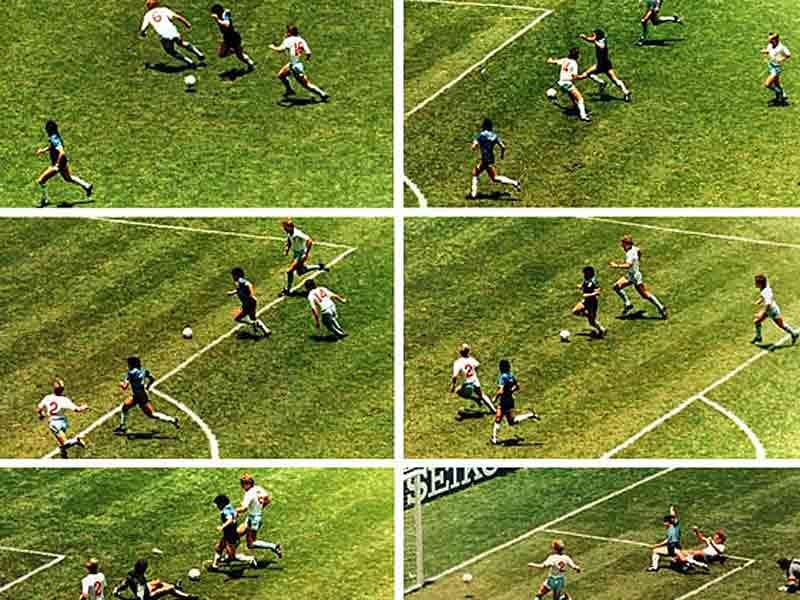How Hacks/Hackers Buenos Aires became the world’s biggest H/H group, or the role of the “Maradona theory” applied to community-building

While we were organizing the latest Media Party, the media gathering that we created three years ago, Hacks/Hackers Buenos Aires became the world’s largest group of the Hacks/Hackers network. With over 3800 members, about 40 events in three years and a strong community of volunteers, we beat New York, London, San Francisco, and many other groups. #Hhba has had a big impact on media, civil society organizations, the government, the startup and the developer community. How did we do it? There is a number of possible explanations, but the most interesting one is the “Maradona theory.”
During the ‘86 World Cup, Diego Maradona made -against England- the two most memorable goals in the history of soccer, at least for Argentina. Let’s start with the perfect goal, the second one: Maradona faces five players from the center of the soccer field, and instead of going sideways, he ran in a straight line. How can someone get rid of five opponents if he runs toward them? Simply: Maradona played keeping in mind other people’s expectations. As his rivals expected him to move to the left or the right, he could keep moving directly toward the opponents’ goal post. Of course, he was Maradona.
Later on, that play was used in economics theory, and by writing this post we are applying it to community-generation theory. In 2005, Mervyn King from the Bank of England used Maradona’s incredible moves to explain the behavior of market expectations and interest rates control without official intervention.
The truth is that we weren’t thinking of Maradona when we created Hacks/Hackers Buenos Aires in April 2011 and got together around 120 people in a couple of weeks, neither when we started to plan the future of the network. But part of the “Maradona theory” has to do with the growth of this network that brings together journalists and technologists around the world to accelerate innovation and reached its peak in Buenos Aires. We built Hacks/Hackers Buenos Aires always moving forward, focused on clear objectives, issues and actions; playing with other people’s expectations: unexpectedly, we always jumped to the center.
When many expected us to be only a networking organization we became productive, creating apps and technology; when we became very productive (we had too many hackathons at times), we decided to return to networking; when we got bored of hackathons and networking we started organizing workshops. Neither journalists nor programmers or designers: we created links in between, focusing efforts in solving technology problems, rather than on specific topics; and we showed the benefits of working together in a highly competitive environment.
And as Maradona’s first goal against England, when nobody expected it, the Media Party happened. Here is where the historical goal by the “hand of God” ties into the story: in the same match against England, Maradona jumped over the goalkeeper, it looked like he was going to do a head hit but ended up pushing the ball with his little left hand that seemed to appear from nowhere. He beats Peter Shilton, the English goalkeeper, who jumped with both hands forward. “’Maradona’s hand of God’ goal [can be compared] to central banks’ old philosophy of ‘mystery and mystique.’ His action was unexpected, out of context and against the rules. He was lucky to get away with it,” said the director of the Bank of England Mervyn King.
The Media Party is to Hacks/Hackers what Maradona’s hand goal is to the English: an unexpected event, out of context and against the then-established rules of the Latin America media circuit. It was not cheating; it was smartness.
Each Media Party allowed us to increase in hundreds the number of members who remain engaged in a continuous loop of innovation. We put Buenos Aires on the global media map, and many are still scratching their heads trying to understand how all of this became possible.



